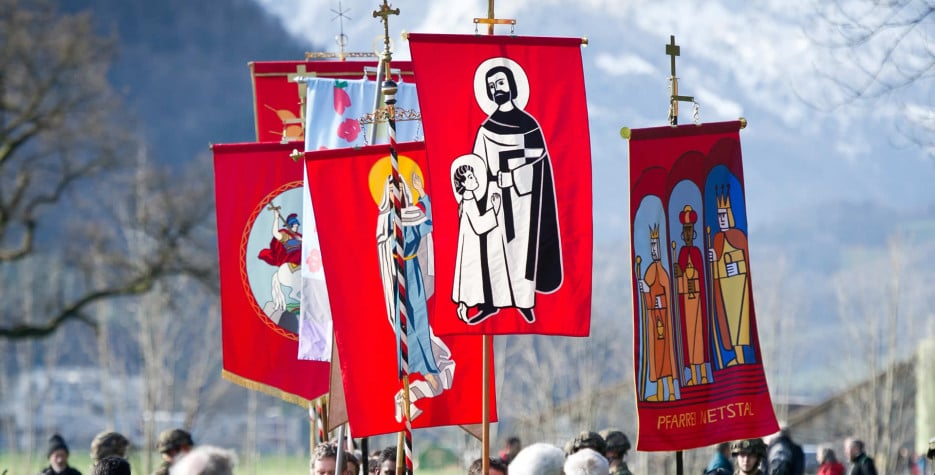When is Näfelser Fahrt?
Näfelser Fahrt is a regional public holiday in the Swiss canton of Glarus, usually observed on the first Thursday in April.
The day marks a pilgrimage to the site of a battle with the Habsburgs in 1388.
History of Näfelser Fahrt
The 14th century was the time of a series of Swiss-Austrian conflicts. In 1387, Glarus had liberated itself from Habsburg control.
On the night of February 21st 1388 (now known as Mordnacht - 'murder night'), the Habsburgs retaliated by attacking the village of Weesen.
The Austrians then positioned two armies with the intention of annexing Glarus from the rest of the Swiss Confederation.
The main army, which numbered about 5,000 men, marched toward Näfels under the command of the Graf Donat von Toggenburg and the Knight Peter von Thorberg.
On April 9th, the Austrians attacked the town of Näfels. The small garrison of about 400 Swiss Confederation soldiers was forced to abandon the town and retreat into the hills.
With the defences broken, the Austrian troops set about pillaging the local villages and farms. The Glarners took advantage of this and attacked the Austrians from the snow and fog. The Austrians were caught by surprise and fled towards Weesen, but the weight of their troops caused the collapse of a bridge, drowning many soldiers in the river below.
In 1389, a seven-years' peace treaty was signed at Vienna, giving the Swiss Confederation undisputed possession of all the territory it had acquired in the recent war. In the same year, the first Näfelser Fahrt ('journey to Näfels') pilgrimage to the site of the battle took place.
The pilgrimage played an important role in forming the Glarner community and the unified canton.


